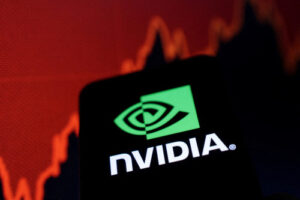By Foo Yun Chee
BRUSSELS (Reuters) – U.S. chipmaker Nvidia has sued EU antitrust regulators for accepting an Italian request last year to scrutinise its acquisition of AI startup Run:ai, saying they had flouted an earlier court ruling restricting their merger powers on minor deals.
While the case does not have any impact on the Run:ai deal which was eventually approved by the EU competition watchdog in December last year, a ruling favouring Nvidia may further curb the regulator’s merger power.
Businesses have been concerned in recent years with the European Commission flexing a rarely-used power called Article 22 to assess small deals even though these are below the EU’s merger revenue threshold.
The EU executive says it is concerned about killer acquisitions in which big companies buy startups to shut them down, but companies criticise such moves as regulatory over-reach.
Europe’s highest court, however, in a landmark ruling in September last year said the Commission cannot encourage or accept referrals of deals without a European dimension from national enforcers when the latter do not have the powers to examine such deals under their own national laws.
Nvidia cited the ruling in its lawsuit filed with the Luxembourg-based General Court, Europe’s second-highest, according to a filing on the court website.
“The decision unlawfully accepted a referral request from the Italian Autorità Garante della Concorrenza (AGCM), regarding a transaction that fell below the EU Merger Regulation and member state merger control thresholds, based on the AGCM’s exercise of loosely defined, ex post, discretionary call-in powers,” Nvidia said.
It said regulators’ decision to take up the Italian request breaches principles of institutional balance, legal certainty, proportionality and equal treatment.
The case is T-15/25 Nvidia v Commission.
(Reporting by Foo Yun Chee; Editing by Susan Fenton)



